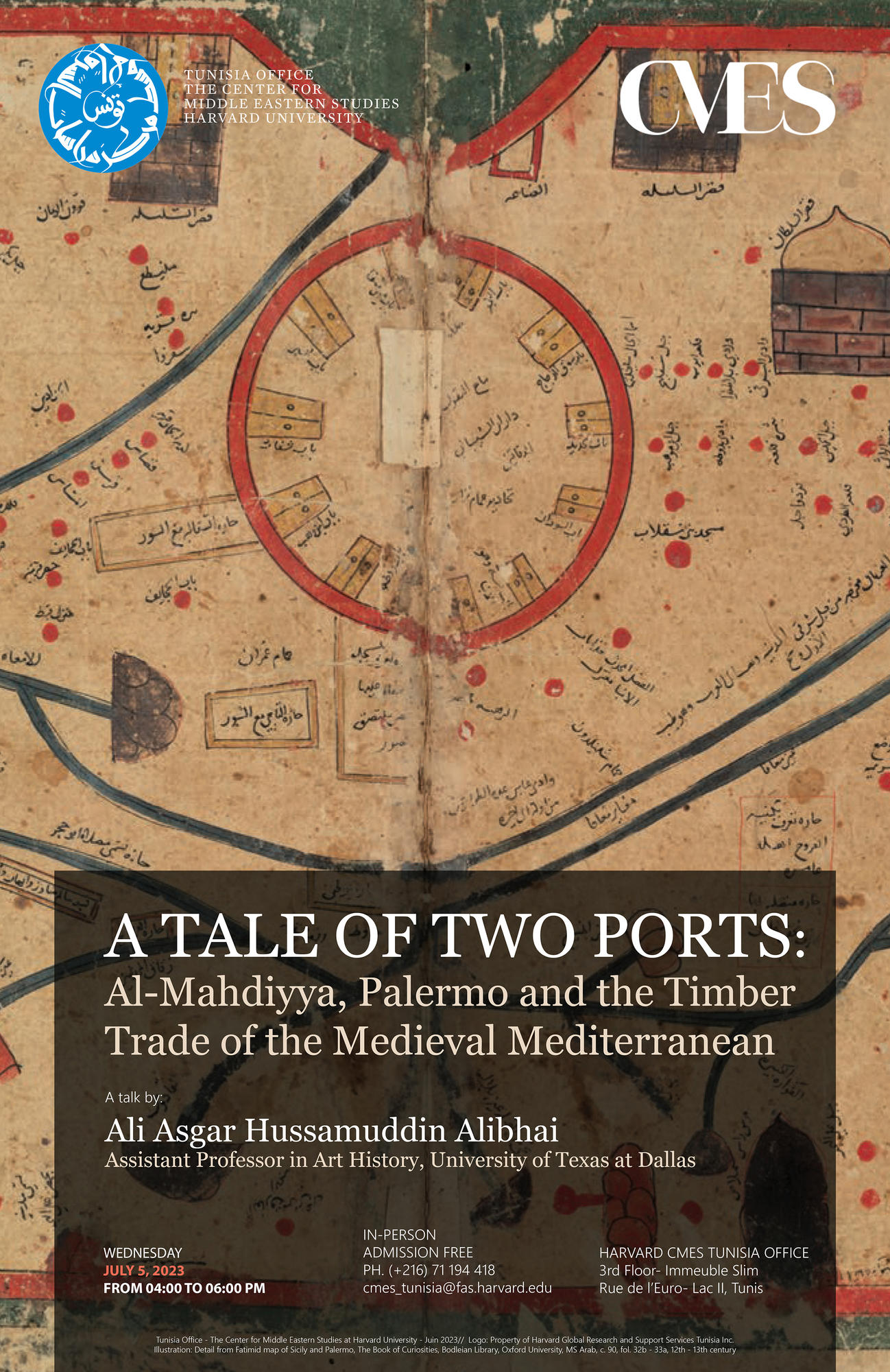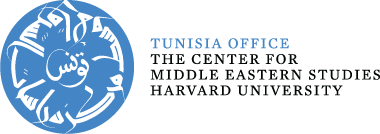Date:
Location:

The Tunisia Office of the Center for Middle Eastern Studies at Harvard University invites you to:
A Tale of Two Port Cities: Al-Mahdiyya, Palermo, and the Timber Trade of the Medieval Mediterranean
A lecture by:
Ali Asgar Hussamuddin Alibhai
Assistant Professor in Art History, the University of Texas at Dallas
Ph.D. in Arabic and Islamic Studies, Harvard University
Ali Asgar H. Alibhai holds a PhD from Harvard University’s Near Eastern Languages and Civilizations Department awarded in November of 2018. He is a scholar of the histories and cultures of Muslim societies and focuses his research on the medieval Islamic world, specifically regions within the Maghrib and Mediterranean worlds. He specializes in the histories and art and architecture of medieval Egypt, Tunisia, Sicily, Spain, and Morocco. Ali’s academic work combines the study of textual and historical studies with art and architectural history to further understand the socio-cultural history and material culture of the medieval Islamic world. His geographical interests however also include South Asia and East and West Africa and the connective narratives of Art History as seen through trade and travel. Ali is an Assistant Professor at UT Dallas and the Edith O’Donnell Institute of Art History where he teaches several undergraduate and graduate courses on Islamic Art. He is currently working on his monograph Medieval Islamic Soundscapes and the Symbolic Transformation of the Bell and the Adhān which discusses the interaction of Muslims and Christians in Islamic Spain and North Africa through the expression of different public forms of sacred sound. This book project is a historical analysis and comparative study of the evolving meanings of the Muslim adhān and the Christian bell/semantron in medieval Islamic civilization through interdisciplinary research derived from art historical, material cultural, historical, juridical, literary, and religious documentation and sources.
This talk is about timber’s essential importance to the global ambitions of the North African Fatimid Caliphate, how the commodity was produced and exchanged, and the environmental and political obstacles faced by timber traders in the tenth century medieval Islamic Mediterranean world. Ali Asgar Alibhai explores the historical developments that occurred at the ports of al-Mahdiyya and Palermo under the Fatimids as a result of continuous commercial exchange between Ifrīqiya and Sicily. He considers the role of the timber trade in the urban development of these two port cities and looks specifically at the role of Ustādh Jūdhar, a tenth-century Fatimid official, in the procurement of timber.
This event will be held in person. Admission free.

